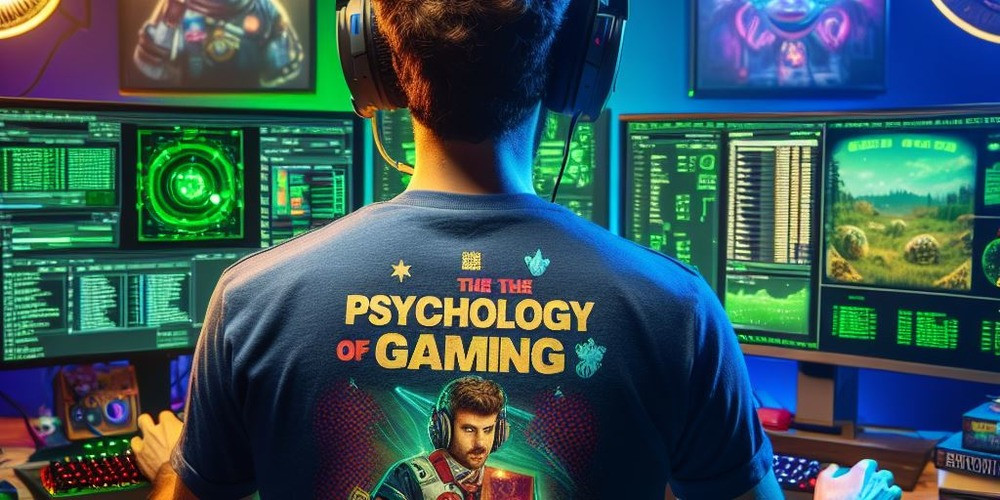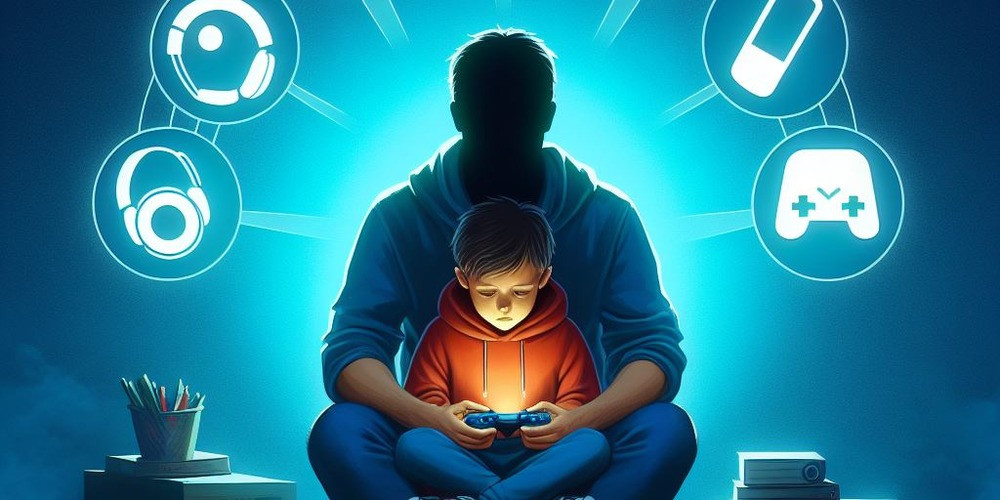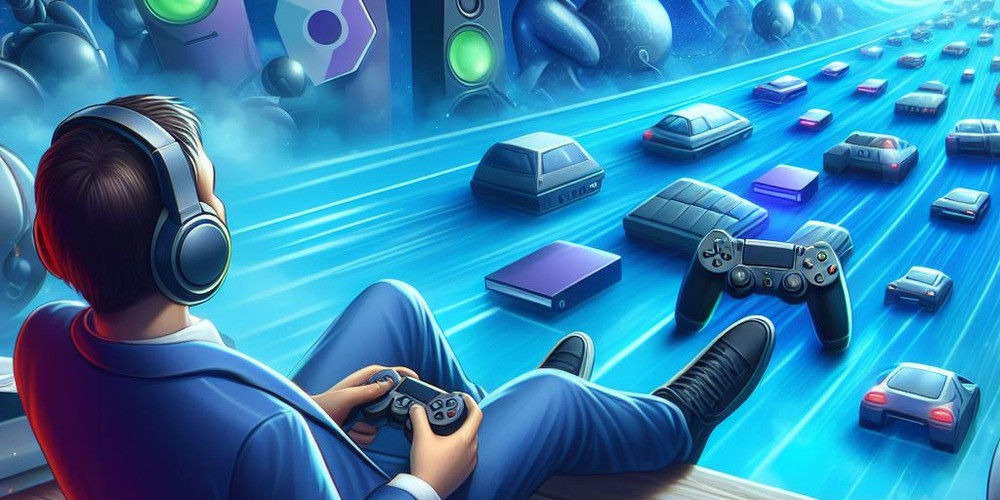Understanding the Pull of Game Addiction: Insights for Gamers and Guardians

Video games have surged in popularity and accessibility, leading to a new digital landscape where millions immerse themselves in virtual worlds for entertainment, social connection, and even livelihood. However, a growing concern among many is the potential for game addiction—an issue that has sparked debates among psychologists, health professionals, parents, and gamers alike. This article delves into the science behind game addiction, exploring the psychological hooks that make these digital experiences so compelling, and offers guidance on recognizing signs of unhealthy gaming habits and strategies for managing them.
Video Games and Addiction
The concept of 'game addiction' describes the intense and uncontrollable engagement with video games, which might disrupt a person's everyday activities, duties, and personal relationships. While the American Psychiatric Association has not officially recognized video game addiction as a unique mental disorder, it has been included in the Diagnostic and Statistical Manual of Mental Disorders (DSM-5) as a condition for further study. Despite this, the World Health Organization has classified 'gaming disorder' as a diagnosable condition, bringing global attention to the issue. Understanding the nuances of game addiction is crucial for both gamers and their families to foster healthier gaming habits.
The Psychology of Gaming: Why Games Can Be Addictive

Addiction and video games are designed to captivate players, often employing psychological principles to keep users engaged. The variable-ratio reinforcement schedule, a tactic borrowed from the world of gambling, rewards players unpredictably. This can cause the release of dopamine, a neurotransmitter linked to enjoyment, making the activity extremely satisfying and potentially habit-forming. Games also offer a sense of achievement, social connection through online multiplayer platforms, and escapism from real-world troubles, all of which can contribute to their addictive potential.
Identifying the Signs of Game Addiction
Recognizing game addiction involves looking for behavioral changes and patterns that suggest gaming is no longer just a hobby but a compulsion. Signs may include neglecting personal hygiene, relationships, and responsibilities, losing track of time while gaming, experiencing withdrawal video gaming addiction symptoms when not playing, and using games to relieve negative emotions. It is important to differentiate between a healthy enthusiasm for gaming and behaviors that signal addiction.
The Impact of Excessive Gaming: How To Stop a Video Game Addiction

Extended durations of playing video games can have several negative impacts on both physical and mental well-being. Remaining inactive for long periods can contribute to weight gain, issues with muscles and joints, and eye strain. Moreover, excessive gaming can exacerbate mental health issues like anxiety and depression, affect sleep patterns, and lead to social isolation from offline communities. It is important for gamers and their families to be aware of these risks and take preventative measures.
Strategies for Managing Video Game Addiction Symptoms
Addressing game addiction requires a multifaceted approach that includes setting clear boundaries, creating a balanced routine that prioritizes other activities and responsibilities, and seeking professional help if necessary. Cognitive-behavioral therapy (CBT) methods have shown efficacy in addressing compulsive gaming behaviors. Moreover, cultivating relationships outside of gaming and exploring different hobbies can also assist in decreasing dependence on gaming for satisfaction.
Parental Guidance: How to Support a Child Struggling with Game Addiction

Parents are crucial in guiding their children on how to manage their video game activities. Open communication is essential, as is setting consistent rules around game time. Providing alternative activities and encouraging participation in family and social events can help children develop a more balanced lifestyle. Parents should also educate themselves about the games their children are playing and discuss the content and values they promote.
The Role of the Gaming Industry in Mitigating Addiction
The gaming industry has a responsibility to consider the impact of its products on consumers. Developers can implement features that encourage responsible gaming, such as reminders to take breaks, controls for limiting playtime, and transparent communication regarding the odds of in-game purchases. Some companies have already begun to take such initiatives in response to the growing conversation around game addiction.
Moving Forward: The Future of Gaming and Addiction Awareness

As the video game industry progresses, so does our understanding of gaming addiction. Continued research is crucial for creating effective prevention and treatment methods. With the expansion of e-sports and the rise of virtual and augmented reality technologies, new challenges and opportunities will emerge in assessing the psychological effects of gaming. It’s important for everyone involved—gamers, parents, industry professionals, and healthcare providers—to work together to foster a healthy approach to gaming.
Gaming addiction is a nuanced issue that demands the attention and understanding of the gaming community, parents, and healthcare experts. By delving into the science of gaming addiction and adopting measures to sustain a balanced gaming lifestyle, individuals can reap the benefits of this digital activity without slipping into detrimental habits. As we move forward in this constantly evolving digital environment, adopting a proactive and knowledgeable stance will be essential for keeping gaming a positive and beneficial aspect of contemporary life.
Latest posts
See more-
![The Last of Us Part II: In-Depth Character Analysis and Storyline Exploration]() Editor’s Choice
2024-08-11
The Last of Us Part II: In-Depth Character Analysis and Storyline Exploration
The Last of Us Part II is an action-adventure video game that has gained significant popularity since its inception. Developed with immense creative prowess by...
Editor’s Choice
2024-08-11
The Last of Us Part II: In-Depth Character Analysis and Storyline Exploration
The Last of Us Part II is an action-adventure video game that has gained significant popularity since its inception. Developed with immense creative prowess by...
-
![CrossCode Developer Announces Alabaster Dawn, Enters Early Access in Late 2025]() News
2024-08-12
CrossCode Developer Announces Alabaster Dawn, Enters Early Access in Late 2025
In 2021, Radical Fish Games initially introduced a new action RPG titled Project Terra. Now, they have officially named it Alabaster Dawn and announced that...
News
2024-08-12
CrossCode Developer Announces Alabaster Dawn, Enters Early Access in Late 2025
In 2021, Radical Fish Games initially introduced a new action RPG titled Project Terra. Now, they have officially named it Alabaster Dawn and announced that...
-
![Alabaster Dawn Planned to Have 30-60 Hours of Playtime, Demo Launching in Early 2025]() News
2024-08-13
Alabaster Dawn Planned to Have 30-60 Hours of Playtime, Demo Launching in Early 2025
Radical Fish Games has made an exciting announcement regarding their upcoming action RPG, Alabaster Dawn, which is set to enter early access in 2025. In...
News
2024-08-13
Alabaster Dawn Planned to Have 30-60 Hours of Playtime, Demo Launching in Early 2025
Radical Fish Games has made an exciting announcement regarding their upcoming action RPG, Alabaster Dawn, which is set to enter early access in 2025. In...
Latest Reviews
See more-
![]() Action
Cult of the Lamb
Action
Cult of the Lamb
-
![]() Action
WILD HEARTS™
Action
WILD HEARTS™
-
![]() Casual
Gacha Club
Casual
Gacha Club
-
![]() Action
Call of Duty®: Warzone™ 2.0
Action
Call of Duty®: Warzone™ 2.0
-
![]() Action
Gacha Cute
Action
Gacha Cute
-
![]() Action
Cuphead - The Delicious Last Course
Action
Cuphead - The Delicious Last Course










